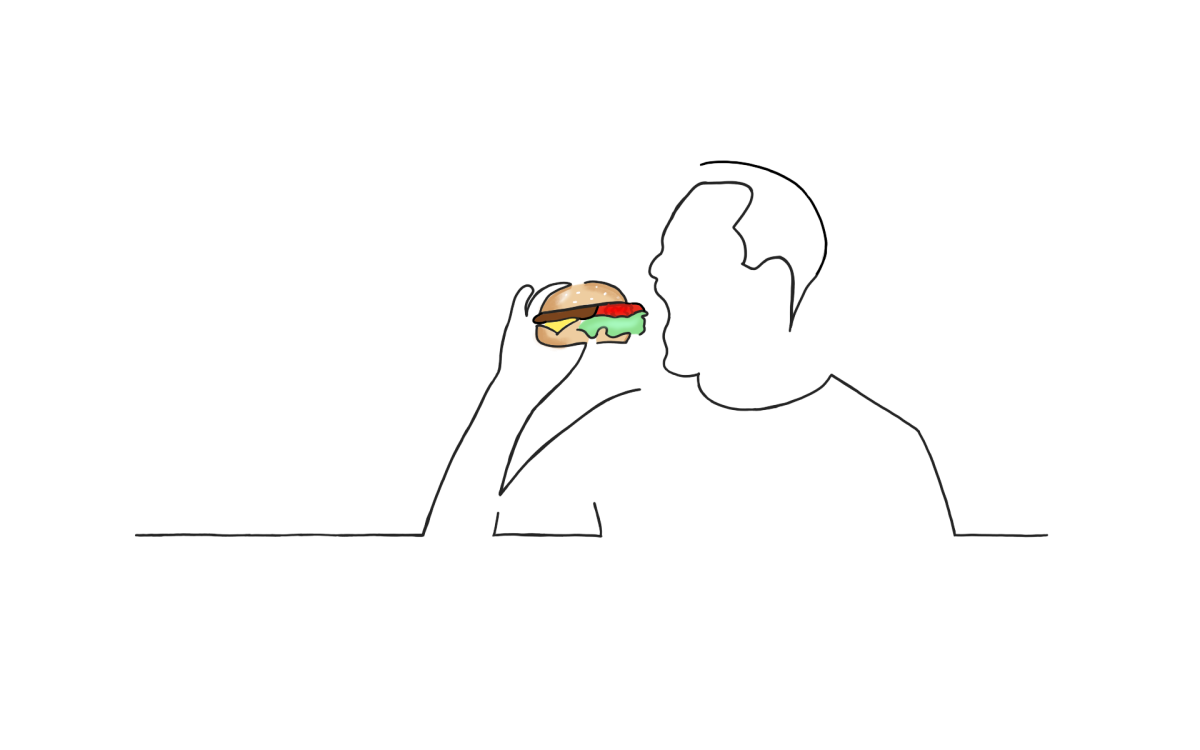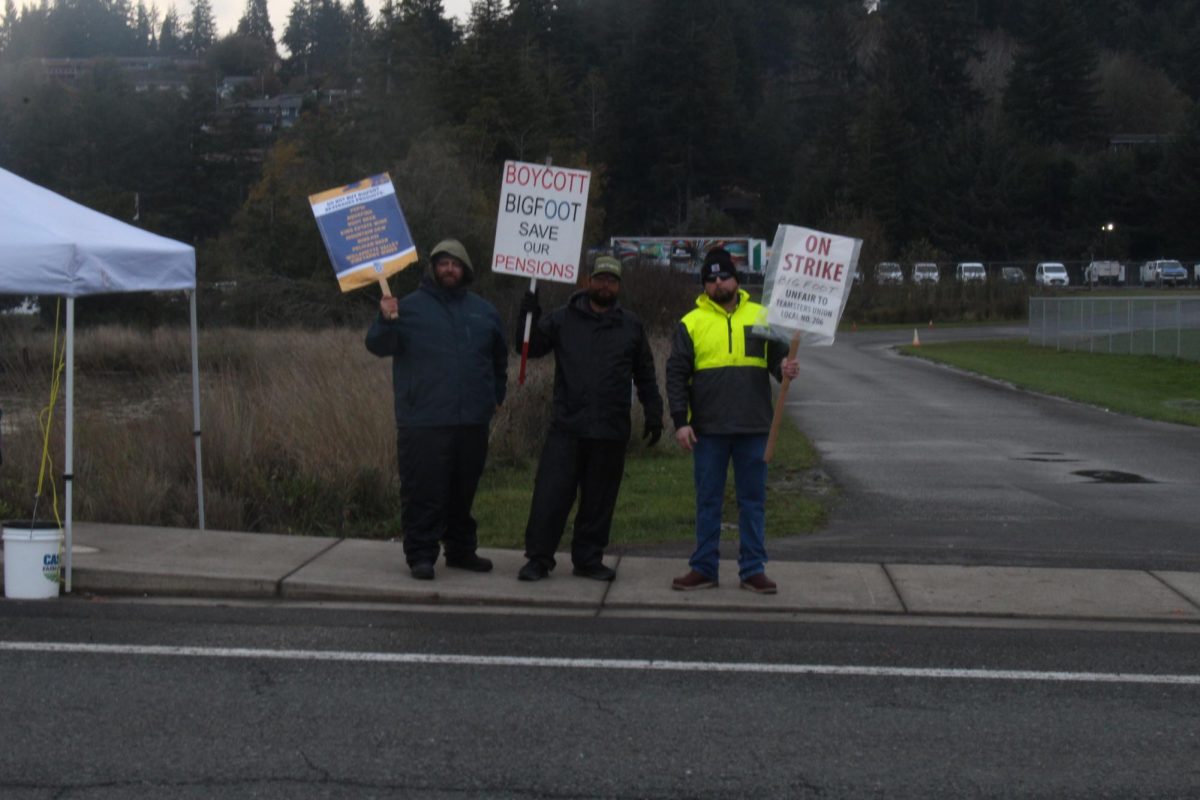Senator Bernie Sanders and former secretary of state Hillary Clinton faced off in their last debate to gain the majority Democratic vote for New Hampshire in the 2016 presidential race.
After the Iowa Caucuses on Monday night, results left Clinton ahead of Sanders by a margin of only one delegate, less than one-third of a percent of the popular vote. Candidate Martin O’Malley received less than one percent of the vote and dropped out of the race shortly after, giving Sanders and Clinton the opportunity for their first head-to-head debate.
The Democratic debate was covered by MSNBC live from Durham, New Hampshire on Thursday, Feb. 4. The main issues discussed in the debate were foreign policy, domestic policy and the future of the 2016 election.
On foreign policy, Clinton was quick to point out that she held the most experience. Sanders conceded this point, but with an explanation of the low value that holds.
“Experience is not the only point, judgment is,” Sanders said. “The United States cannot do it alone. We cannot be the policemen of the world.”
In previous debates, the two have clashed on the issue of policy in Iran. Their plans for boots on the ground both discuss wanting the least amount of troops as possible. However, Clinton’s plan alludes to president Obama’s policy stating that specialized troops are needed there. Sanders states that he does not want boots on the ground at all, but recognizes the country’s inability to remove them immediately.
The disagreement arises when discussing the normalization of relations with Iran. Clinton said she does not want to normalize, stating she is pleased with the nuclear weapon agreement she backed during her time as Secretary of State, but she believes the U.S. cannot allow Iran’s sponsorship of terror in the Middle East.
“If we were to normalize relations right now, we would remove one of the biggest pieces of leverage we have right now to try to influence and change Iranian behavior,” Clinton said.
Sanders disputes this stating the only way to end conflict is to find a way to normalize, giving the historical example of Cuban relations.
“When you [Clinton] ran against Senator Obama, you called him naive because he thought it was a good idea to talk to our enemies,” Sanders said. “I think those are the people you have to talk to and you have to negotiate with.”
Overall, the two laid out their foreign policy with Clinton wanting eventual decrease, and Sanders wanting an end to war in the Middle East.
“If you can’t afford to take care of your veterans then don’t go to war,” Sanders said.
On a domestic scale, the two candidates agree on many issues, but only to a point.
While both candidates agree that change needs to be made to ensure affordable health care provided by the government, the agreement on the issue ends there.
“I think that it would be a great mistake to once again plunge our country into a contentious debate about whether we should have and what kind of system we should have for health care,” Clinton said.
Clinton’s statement that she does not want to start over on the U.S. health care policy is driven by the idea that the government should improve the current system. Sanders’ response is an illustration of the nations which have already implemented reform and seen success.
Much of the debate was over the credentials each candidates holds, and how change will be made. Clinton refers to her previous position as Secretary of State to explain how her reform plan will make these changes happen.
“I’m interested in making what we have work better,” Clinton said. “I want a top to bottom review of what works and what doesn’t. I have an idea of what will make our government work better and more efficiently.”
The two went back and forth with accusations and discussion of what the terms progressive and establishment mean.
The debate ended with Sanders questioning the credibility of Clinton thus far in the election, considering her ties with Wall Street. Clinton firmly responded she does not believe being backed by members of Wall Street has had any impact on her situation in the race.
“If you’ve got something to say, say it directly, but you will not ever find that I changed a view or a vote,” Clinton said.
Their policies differ in a lot of areas of domestic social policy, including that of the death penalty. Where Clinton believes it should be used sparingly and only under the decision of the federal government, Sanders does not believe it should be used at all.
“In a world of so much violence I don’t believe the government itself should be part of the killing,” Sanders said.
The debate finally moved to situation ideals after the race for the Democratic candidate closed. Each was asked why they would be able to win against the Republican party.
Sanders said he believes either one of them could win over the Republican party as long as enough Democratic supporters go and vote. Clinton responded similarly, adding that the Democratic candidates have a better chance anyway.
“It’s who the American people believe can keep them safe, restore the economy, build on the movements Obama has made,” Clinton said.
Just before closing statements, the candidates were asked about their potential vice president as a running mate for the election. According to Clinton, Sanders would be her first choice in order to keep the party united.
Sanders avoided answering the question directly, responding that he has a lot of respect for Clinton despite the disputes the two have on select issues.
“On our worst days, it is fair to say, we are 100 times better than any Republican candidate,” Sanders said.























